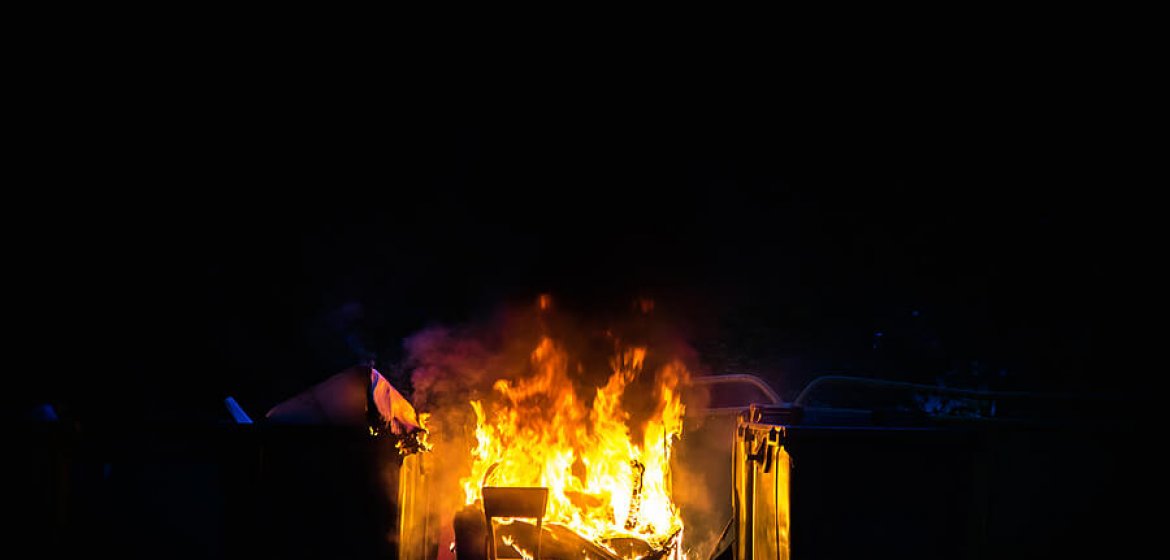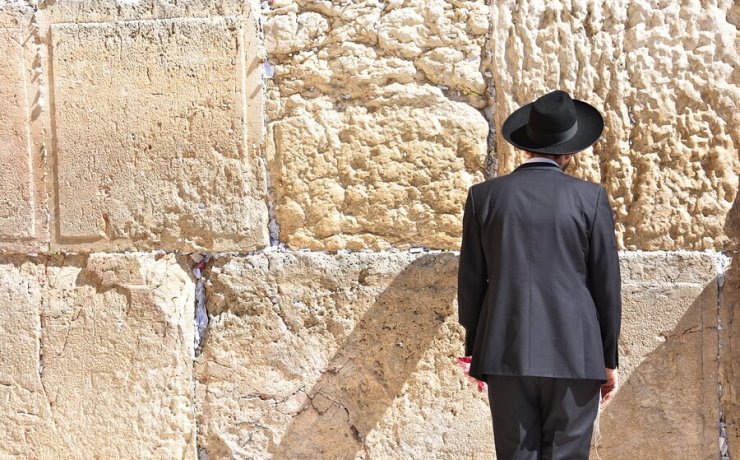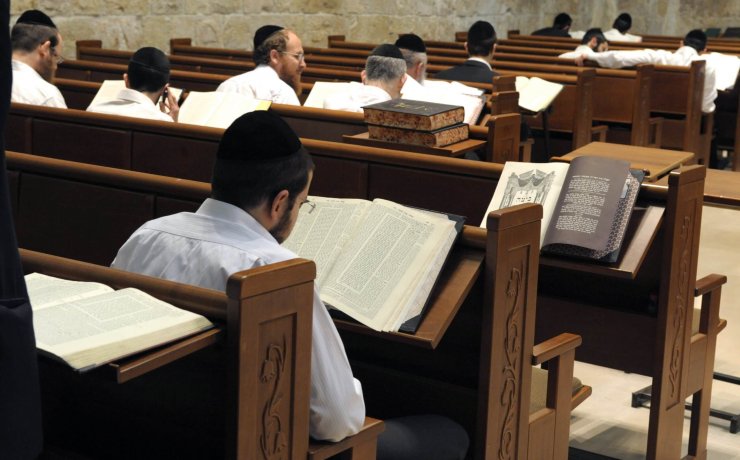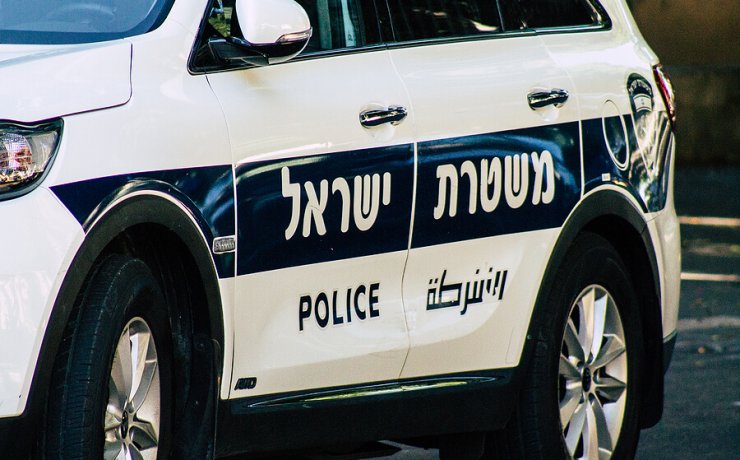In the wake of recent violence on the Charedi street, many Charedi commentators (some would call them apologetics) have noted that those guilty of violent behavior are not in fact Charedim at all. True Charedim are not violent. This argument justifiably refers to values we cherish, but it also reflects a refusal to take responsibility. We cannot exempt ourselves from the actions of those we raised and molded.
In the midst of riots and struggles between police and residents of Bnei Brak, media consultant Yerach Toker tweeted a few short sentences that set social media on fire:
Anyone who is violent is not Charedi; he’s violent. Anyone who throws rocks is not Charedi; he’s dangerous. Anyone who wounds and harms others is not Charedi; he’s a criminal. Anyone who curses his fellow is not Charedi; he’s uncivilized. Anyone who desecrates God’s name is simply not Charedi.
This argument reminded me of the famous story of two Jews arguing fiercely over a dispute between two known rabbis. During the fight, one of them hurled a serious attack on one of the rabbis, even omitting the rabbinic title and referring to him by his family name alone. His shocked interlocutor was quick to protest this demeaning of Torah scholars: “How dare you speak that way of a rabbi and a talmid chacham?” he yelled. “I am not speaking against a rabbi and a talmid chacham, God forbid!” he replied on the spot. “I am claiming he’s not even a rabbi!”
This sort of pilpul-like answer sounds very Jewish, but it turns out that non-Jews are aware of it too. English philosopher Antony Flew called this the “no true Scotsman” argument, based on the paradigmatic example of this type of claim. It goes roughly like this: Alistair and Anabelle, a well-rooted Scottish couple, sit down with their morning coffee for a learned discussion. Anabelle accuses Alistair that he is not giving her any attention and has his head stuck in his newspaper, not even bothering to glance at her. Alistair responds in his defense that “Every Scotsman reads the paper with his morning coffee.” But Anabelle is not convinced and responds: “Not true, my father is a Scotsman, and he doesn’t read the paper when he drinks his coffee.” Here Alistair takes out his winning card: “Yes, but no true Scotsman drinks his coffee without the paper.” Flew coined this phrase to characterize a whole family of excuses which rather than dealing with the relevant question narrow the argument so that it only applies to cases that are convenient for them.
Unfortunately, we are all too familiar with this kind of rhetoric. Whenever we hear about a Charedi individual whose behavior is out of line, we are quick to resolve our say “A real Charedi person would never do this; if he did, he isn’t Charedi!”
At first glance, this is nothing more than a rhetorical trick and lousy apologetics. But an entire worldview lies behind the excuse. The logic behind the argument is that if we ideologically disavow violence and even educate our youth in this light, we are duly exempted from responsibility when members of our community violate our own education. But this line of thought contains a much more serious flaw than Flew’s fallacy. It belies a distorted concept of responsibility, limiting the concept to successful products of the system. Charedi education is effectively claiming: If you put your kid in our school system, we take full responsibility for them. And then comes the disclaimer, in small print: “Unless he stops being Charedi.” It is like car insurance that protects against all cases – unless the car gets into an accident. We take responsibility for all our children, but only if there are no accidents and they remain “real Charedim.” Bottom line: we need to take responsibility.
Who is Charedi? A Contract of Shared Values
Please do not misunderstand me. I believe there is importance in declaring that those who act against halacha cease to be Charedi, and halacha certainly forbids the destruction of property and causing suffering and harm to others. Such a declaration teaches us our own society’s values, and it contains an element of condemnation of undesirable actions. The Charedi community has no prison into which to toss violent criminals or thieves or those who do things contrary to the Torah, and the main tool it possesses for condemning such actions is to declare that those who committed them are unworthy of being considered part of the community.
Charedi Jewry thus shows itself to not be so tribal as to cover for members of the tribe regardless of their values and conduct, but rather a grouping based on an ideology of shared values. Our values are the good and the worthy based on the Torah. As observant Jews, we are tasked with being careful about the dignity and property of others – whether it be a cent or a fortune. Verbal abuse is also forbidden, as is gossip and public shaming. We do not just stop at the letter of the law; even its spirit is binding. Our sons and daughters are taught in schools about values such as “anyone who forgives slights to his honor – his sins are forgiven,” and “Just as He is merciful, so should you be.” Charedi youth are taught to be considerate of others, to give charity, and to be devoted to others. Belonging to Charedi society requires adopting these values, while those who refuse to do so are not entitled to membership. A person who does not adhere to the core norms of the community removes himself from the same.
This could also be true for Charedi society, which has the right to revoke a person’s “Charedi passport” if he fails to follow ethical community norms. In other words, our definition as a group revolves around shared values. We are Charedim since we “fear for God’s word,” and in this sense, anybody who does not do so is not Charedi. Simple as that.
This is parallel to a doctor must take the Hippocratic Oath, which represents the accepted principles of medical ethics in the community of doctors, as a condition for acceptance into the clique of medical practitioners. If after receiving his medical license, the doctor acts against the ethics he avowed, the medical profession will declare his unworthiness of being a doctor and revoke his license. This could also be true for Charedi society, which has the right to revoke a person’s “Charedi passport” if he fails to follow ethical community norms. In other words, our definition as a group revolves around shared values. We are Charedim since we “fear for God’s word,” and in this sense, anybody who does not do so is not Charedi. Simple as that.
This can easily take us back to the introductory statement of this article. We, Charedi society, believe in charity; a great deal of it. We are surrounded by wonderful people who would give you the shirt off their back and their last meal. We are witness to Kollel students struggling to make ends meet who give whatever money they have to youth who cannot afford to buy clothes. The entire community is filled with charity and giving and sacrificing for others. We teach our children to love and forgive rather than lifting a hand. And somebody who publicly shames his fellow is considered a murderer. Obviously, a violent person cannot be one of ours. A violent ben Torah is an oxymoron!
Charedi Belonging as Covenant of Shared Effort
But ideology, as so often the case, is quite distinct from reality.
Charedi society is not some prestigious club with rigid rules of acceptance or an organization like the Freemasons. The Charedi community is the place into which you are born, without making any choice or passing any entrance exam. No contract is signed between the community and its members. We are tied to each other, live side by side, are bound by blood or history, and work together for the sake of our shared life – like all communities, really.
The actual basis of the community is almost unrelated to its declared values or shared ideology. In reality, a person born to a Charedi family is part of it for better or worse, until he actively removes himself from it or is publicly cast out. If a person from Charedi society acts in a certain way, there is no way to automatically disavow him, even if his actions fundamentally run against community teachings. He is a tangible part of the community and this reality cannot be dismissed by means of declarations. The ideological statement that “We are X and Y and therefore he, who is not X and Y, is not a part of us” is inherently ineffective.
This kind of communal connection requires much deeper responsibility for community members. It is not the medical community that can simply revoke the license of lawbreakers, but rather one big family that simply cannot toss out a kid who ignores his parent’s morals and teachings. The responsibility of the community for its members is more like that of parents towards their children, rather than that of a manager of a prestigious club for the quality of its members. A person born into a particular community remains bound to it in fate connection he never chose and the community, being the site on which the bond was formed, is responsible for him. It cannot disavow this responsibility.
Moreover, the community, as the environment in which a person is raised, molds him and influences his actions. This potential influence means the community has responsibility for the people it produces. The community is the factory that manufactures the people, and certainly not a boutique store that just chooses its goods. Therefore, it is responsible for products being formed without major flaws, and it does not have the privilege of returning damaged goods to the factory. When someone in the community raises a public stink, his actions boomerang back to the entire community, which is legitimately hit with the charge: “Look at what you have wrought!”
The Charedi community is not a club the clearly righteous enter after passing through the Charedi Acceptance Committee, but rather the sweatshop into which all who wish to live a certain way of life, and to deal with the challenges raised by its manners, meet one another.
The proper way to think of the values of Charedi society is thus not as a contract for entering a prestigious social club, but as a covenant of shared effort for applying those values in real life. To be an observant Jew is a daily struggle. The challenges are endless – from educating children and finding an appropriate environment to live a Torah life to the smallest personal challenges this way of life awakens. The Charedi community is not a club the clearly righteous enter after passing through the Charedi Acceptance Committee, but rather the sweatshop into which all who wish to live a certain way of life, and to deal with the challenges raised by its manners, meet one another. When we fail in our efforts, we need to engage in soul-searching rather than waiving the problem away by saying “He is not Charedi.”
Not in God’s Name
There are, in fact, two types of disavowal. If the disavowal declares that the person in question “has nothing to do with us,” then it implies burying the issue and fleeing responsibility. But if the disavowal means to condemn the action and prevent the smearing of the community’s values due to the actions of somebody acting in its name, then this is a proper and even necessary act. The Torah commands us to perform a similar ritual of declaration in the case of the egla arufa. In other words, we must not disavow a connection to a person who sinned, but we must certainly disavow the connection between his action and “being Charedi.”
For instance, if a person murders someone in the name of Judaism, we would be right to declare that Judaism does not encourage murder of any kind, so that his actions should not in any way be attributed to Judaism. However, this disavowal does not exempt us from soul-searching and figuring out how such a person emerged from within our community, our educational system, the atmosphere and the influence of the communal environment we created, and so on.
The case of the egla arufa – the slaughtering of a lamb at a dead river and the prayer recited by the Elders performing the ritual – is a wonderful example of taking responsibility. After all, a body was found near the city, and no-one knows if he has any connection to it. In the words of the Torah, “We know not who struck him.” The only connection is the proximity to the city based on measurements. But does the fact of the body’s being near the city mean its residents are responsible? There is nothing easier than saying “It cannot be that a murderer came from our city!” On the contrary: if he is a murderer, he cannot hail from our society. But the Torah considers this to be an attempt to literally bury the truth, disavow an injustice taking place within one’s jurisdiction and territory, and a criminal act of willful blindness. The Torah teaches us that responsibility derives from actual, tangible reality. You are nearby -> you can have influence -> you have the responsibility.
[W]e must not claim that “they are not Charedim.” We must instead examine our own actions and see if we can declare, in all sincerity: Our hands did not spill, and our eyes did not see this blood. We must ask ourselves whether we did all we could to do the right in the eyes of God, or whether there was something we could have done but failed to make good.
For this reason, if something happens within our social borders, we cannot simply say “He isn’t one of us.” Our elders and leaders, “who determine each law and each affliction,” need to approach the river and cry out: “Our hands did not spill this blood and our eyes did not see” – we did all we could to drive out the affliction, but it happened, nonetheless. Only then, when they declare they made every possible effort to do the “right in the eyes of God” – then “the blood is atoned for them.”
***
To sum up: It is certainly hard for us, as a community based on exalted values of giving and sacrificing for others, to accept that actions entirely contradicting our system are attributed to us. It is also appropriate to feel distant and dismayed towards people who act in detestable ways that run contrary to all we believe in. But despite all this, we must not claim that “they are not Charedim.” We must instead examine our own actions and see if we can declare, in all sincerity: Our hands did not spill, and our eyes did not see this blood. We must ask ourselves whether we did all we could to do the right in the eyes of God, or whether there was something we could have done but failed to make good. Only then can we claim cleanliness of hands and remove the clean blood from our midst.
Image: Bigstock







For your consideration:
Both Goldstein and Amir were products of the Religious Zionist establishment. After Rabin’s assassination, Rabbi Aharon Lichtenstein of Yeshivat Har Etzion addressed his students and community. He spoke of the shame that he expected everyone – religious, secular, right and left – to feel, “that our state, our people, should have fallen to such a level.” He implicated his own Religious Zionist community most of all, as Amir was a product of its institutions. While it’s easy to call Amir an anomaly, Rabbi Lichtenstein pointed out that “a day before the murder, [Amir] could have been cited as a shining example of success and achievement, and a source of communal pride.” In a display of taking ownership and accountability, Lichtenstein demanded that the community take a deep look at itself and confront what it sees:
…If a day before the murder we would have said proudly, ‘See what we have produced,’ we must say it now as well: ‘See what we have produced!’ It is indefensible that one who is willing to take credit when the sun is shining should shrug off responsibility when it begins to rain.
KT